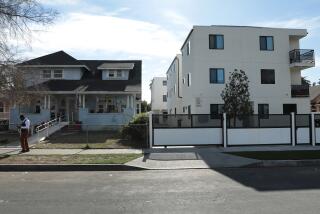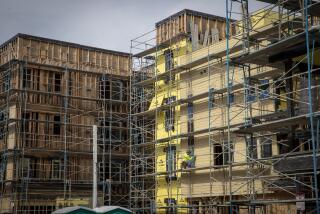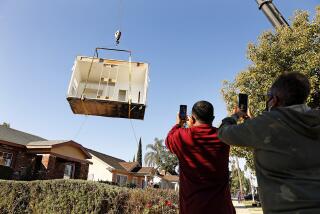The revenge of the suburbs: Why California’s effort to build more in single-family-home neighborhoods failed
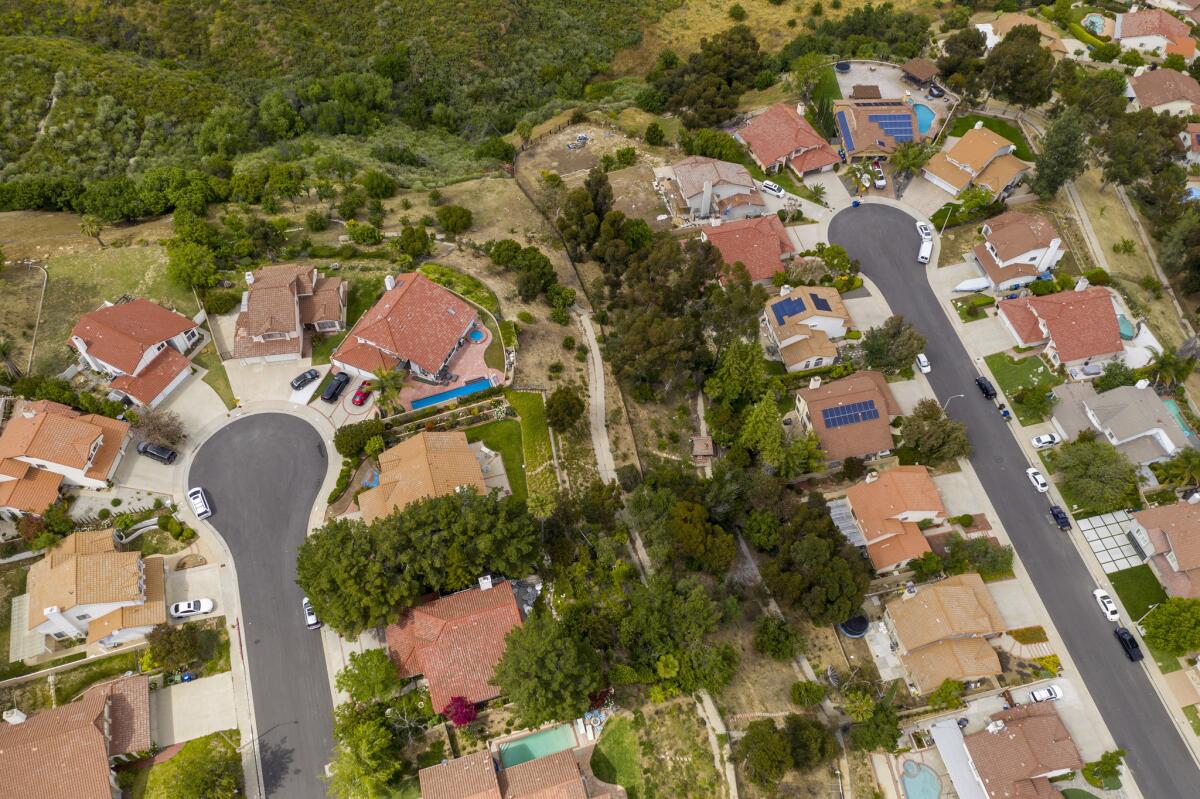
Powerful interests lined up behind Senate Bill 50, a proposal in the California Legislature to dramatically increase home building near mass transit and in neighborhoods zoned only for single-family homes. On board were labor and business groups, environmentalists and developers, students and retirees, all of whom argued that radical change was necessary to solve the state’s housing affordability crisis.
But an influential cohort with membership across the state opposed the measure with all its political might: suburban homeowners. And last week, a legislative committee blocked SB 50, a decision principally made by the panel’s chairman Sen. Anthony Portantino, a Democrat from the Los Angeles bedroom community of La Cañada Flintridge.
Other legislators from the suburbs said they were alarmed about the legislation’s potential effects on their communities. Local elected officials and neighborhood groups from San Diego to Marin County united to push back against the bill with activists from smaller, affluent areas taking the lead.
All believed SB 50 represented a significant incursion by the state into local affairs.
“There is a wake-up call that our legislators are not representing people at the grass-roots level,” said Susan Kirsch, an activist from Mill Valley and head of Livable California, a slow growth organization. “We were very concerned about decisions being made further and further away from people who have to live with the consequences of them.”
Without a strong push from Gov. Gavin Newsom and Senate President Pro Tem Toni Atkins (D-San Diego), the weight of the opposition led to the bill’s demise.
California bill to add housing in single-family home neighborhoods blocked by lawmakers »
The legislator behind SB 50, Sen. Scott Wiener (D-San Francisco), argued that major changes to how local governments plan and zone for housing were necessary to address a severe shortage of available homes and to help the state meet its goals to reduce greenhouse gas emissions. His proposal would have required local governments to allow mid-rise apartment construction near rail stations and four or more homes on parcels of land in most single-family neighborhoods. With some exceptions, the bill would have allowed more growth in nearly every area of the state where homes already have been built.
But to many residents in suburban areas, the legislation was a threat — one they felt would have taken power away from local officials, destroyed the character of neighborhoods and allowed development interests to overrun communities with expensive new projects.
Kirsch founded Livable California in 2018 shortly after Wiener put forward an earlier version of the bill that was defeated with broader opposition. This year, as SB 50 gained support from more interest groups, the group mobilized to oppose it.
Kirsch said she believes state officials have demonized suburban homeowners and local governments, blaming them for California’s housing problems. The true culprits, Kirsch said, are giant technology companies that rapidly grew but did not invest enough in affordable housing to offset the effects of an influx of new workers on the housing supply. Legislative leaders should instead force those companies to do more, she said.
“Success led to the housing crisis,” Kirsch said. “These companies are having enormous profits without having to take responsibility for their own contribution to the jobs-housing imbalance.”
Kirsch considered her organization a clearinghouse for information about SB 50 that she disseminated to like-minded activists across the state. Her Northern California group joined with the Coalition to Preserve L.A., an organization that has backed measures to restrain the amount of building in the city, to start a website identifying communities that would be most affected by the bill. The effort connected neighborhood groups and local officials from San Diego to Silicon Valley.
Earlier this year, Redondo Beach Mayor Bill Brand attended a Livable California event nearly 400 miles away in Palo Alto. More than 90% of residents in Redondo Beach work outside the city, Brand said. Forcing Redondo Beach to allow more housing would not attract the jobs the community needs to boost its budget and fix traffic problems, he said.
“For the state to come down and say we’re going to take away your ability to control what happens in your town is misguided,” Brand said. “They don’t know what they’re doing.”
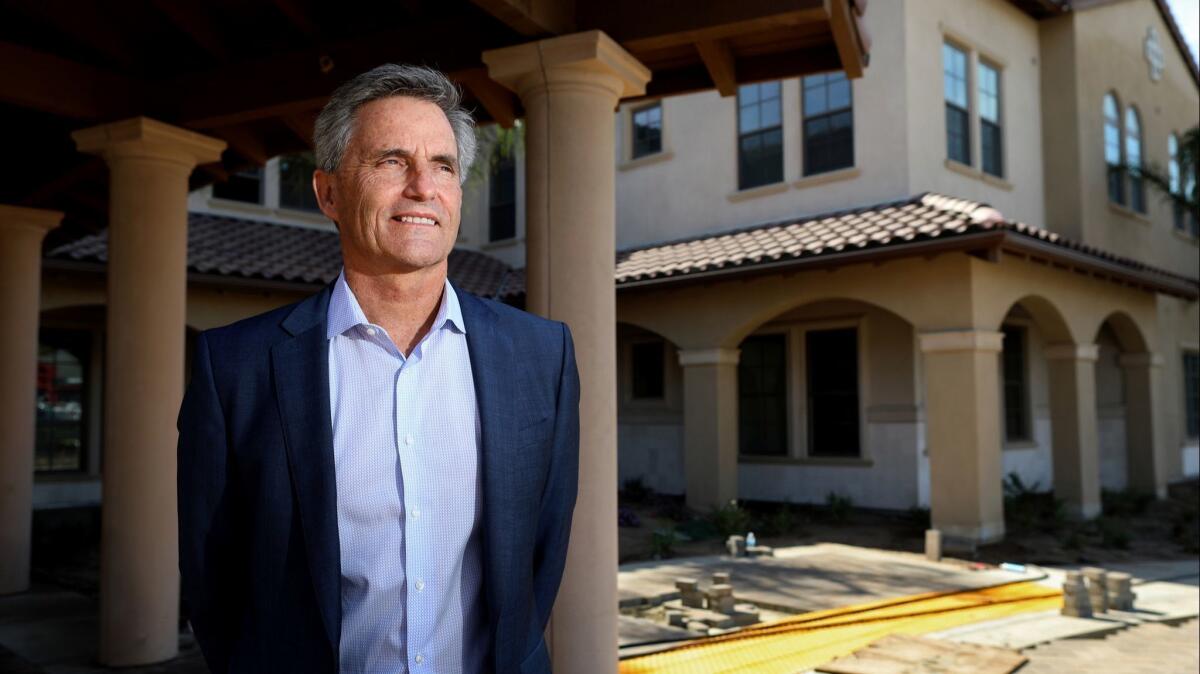
Brand is part of a group of local officials and neighborhood activists that is considering filing a statewide ballot initiative for 2020 to amend the California Constitution and ensure planning and zoning rules remain the sole responsibility of cities and counties.
“Why should we have city councils if we can’t control the type of development we have in our town?” he said. “We should just dissolve the city and let [the state] handle it.”
State lawmakers felt the full force of community groups that came out against the bill. Sen. Bob Hertzberg (D-Van Nuys), who represents the San Fernando Valley, said the neighborhood councils in his area were all so opposed to SB 50 that they formed special committees within their groups to fight the bill.
Hertzberg said the bill would have undermined the character of his district, which saw a boom in single-family tract home development after World War II.
“The San Fernando Valley that I represent was the American dream where people could have a barbecue and a backyard,” Hertzberg said.
He said the state should find less radical means to incentivize growth, such as providing leases on public land and tax breaks for investors to build low-income housing.
“You do not need to destroy single-family housing in order to achieve the necessary goals that we need to meet,” Hertzberg said.
But supporters of SB 50 said those fighting hardest against the bill are wedded to a system that favors suburban homeowners.
“We all talk about the climate change crisis, the homelessness crisis, the affordability crisis, but when push comes to shove we all keep doing the same things we’ve always been doing,” said Michael Lane, deputy director of Silicon Valley at Home, an affordable housing advocacy group. “Our elected officials at every level are listening to the loudest voices, those who want no change, those who are already comfortably housed.”
Suburban communities and neighborhood groups weren’t the only ones against SB 50. The Los Angeles City Council voted to oppose the bill, as did the San Francisco Board of Supervisors. Many groups that represent low-income tenants were instrumental in defeating last year’s version of Wiener’s bill but did not oppose SB 50. Still, they raised concerns that growth spurred by SB 50 would lead to wealthier newcomers pushing out longtime residents.
But it was suburban lawmakers from more affluent areas who controlled SB 50’s path through the state Capitol.
In April, Wiener agreed to limit the bill’s effects in small counties by reducing required building heights near rail and lowering density requirements in single-family neighborhoods from those proposed for larger counties. The move was a concession to Sen. Mike McGuire (D-Healdsburg), who represents Marin and Sonoma counties and other suburban and rural Northern California communities. In turn, McGuire threw his support behind SB 50 and the bill advanced from the committee he leads.
The deal between Wiener and McGuire prompted Kirsch, who was vacationing in Greece, to write a letter to nonprofit news site CALmatters, arguing that lawmakers were providing giveaways to developers by undermining the foundations of local democracy.
“As earthquake and erosion destroyed Athens, the housing bills of Wiener and McGuire, rather than solving the housing crisis, chip away at the pillars of Western Civilization,” Kirsch wrote. “That’s the crisis.”
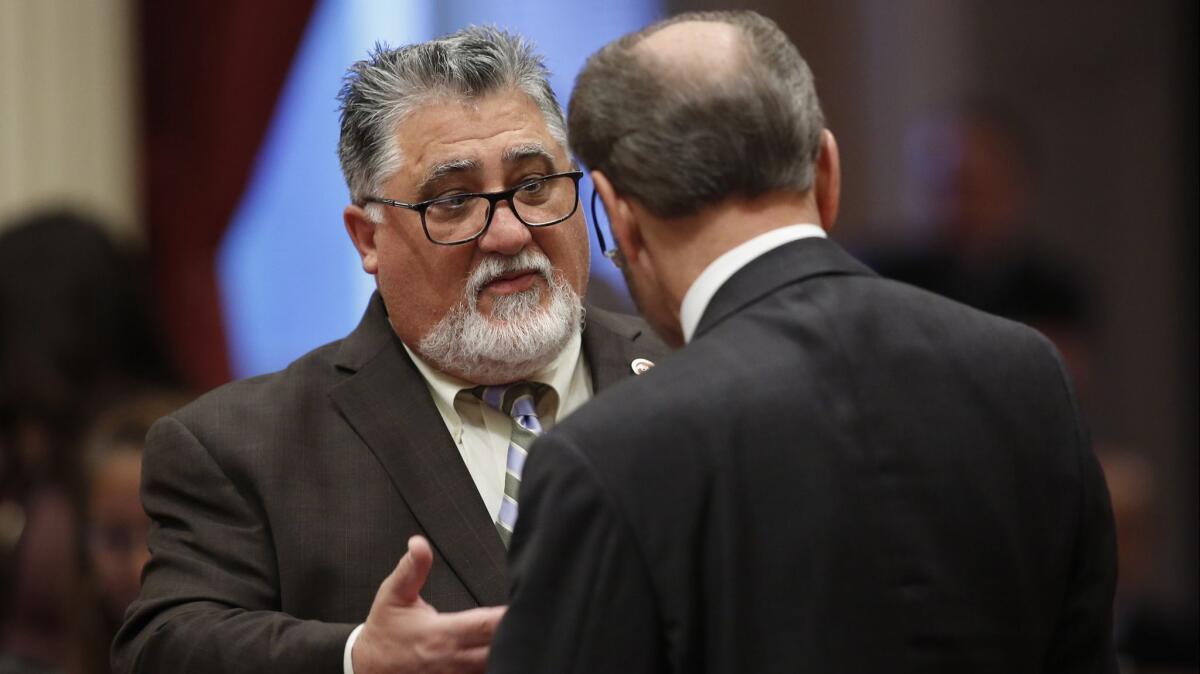
After McGuire’s committee, the bill headed to the Senate Appropriations Committee, led by Portantino. The lawmaker is a former mayor of La Cañada Flintridge, a suburb of 20,000 people where city officials say no multifamily housing developments have been built in a decade. The median sales price for a home in La Cañada Flintridge is $1.6 million, according to the most recent monthly data from real estate tracker CoreLogic.
State legislators can block bills in appropriations committees without explaining how or why action was taken, and there was no public vote to shelve SB 50. Portantino said he was opposed to the bill because it stripped decision-making authority from local governments. He also believed the legislation would create a disincentive for cities and counties to expand transit in their communities if it meant they would lose control over land use at the same time.
“I think it was the time to take a breath and we took a breath,” Portantino said after blocking the bill, which is eligible to come up again next year.
While Portantino’s opposition to SB 50 was expected, it was still a surprise that the bill did not advance to a vote on the Senate floor.
Legislative leadership plays an outsized role in deciding whether bills move forward from appropriations committees. In December, Atkins created a new housing committee in her chamber and made Wiener the chairman, a move that appeared to be an endorsement of his aggressive approach to housing legislation.
Atkins declined requests for an interview, but said in a statement that she deferred to Portantino’s wishes.
“Short of significantly amending the bill and limiting its applications in large swaths of the state, there was no path to move forward this year,” Atkins said.
Newsom, who has pitched a nearly five-fold increase in home building as part of his plan to address the state’s affordability problems, did not support the bill in advance of it being shelved last week. Soon afterward, he said he was “disappointed” by the decision to block it.
At a news conference on Tuesday to announce a new task force on homelessness, the governor declined to say whether he wanted the bill to be revived this year.
“To the extent that we can find a pathway to take core components of SB 50 and getting it over the finish line, I’m committed to helping support that effort,” Newsom said.
Times staff writer Phil Willon contributed to this report.
More to Read
Get the L.A. Times Politics newsletter
Deeply reported insights into legislation, politics and policy from Sacramento, Washington and beyond. In your inbox three times per week.
You may occasionally receive promotional content from the Los Angeles Times.

